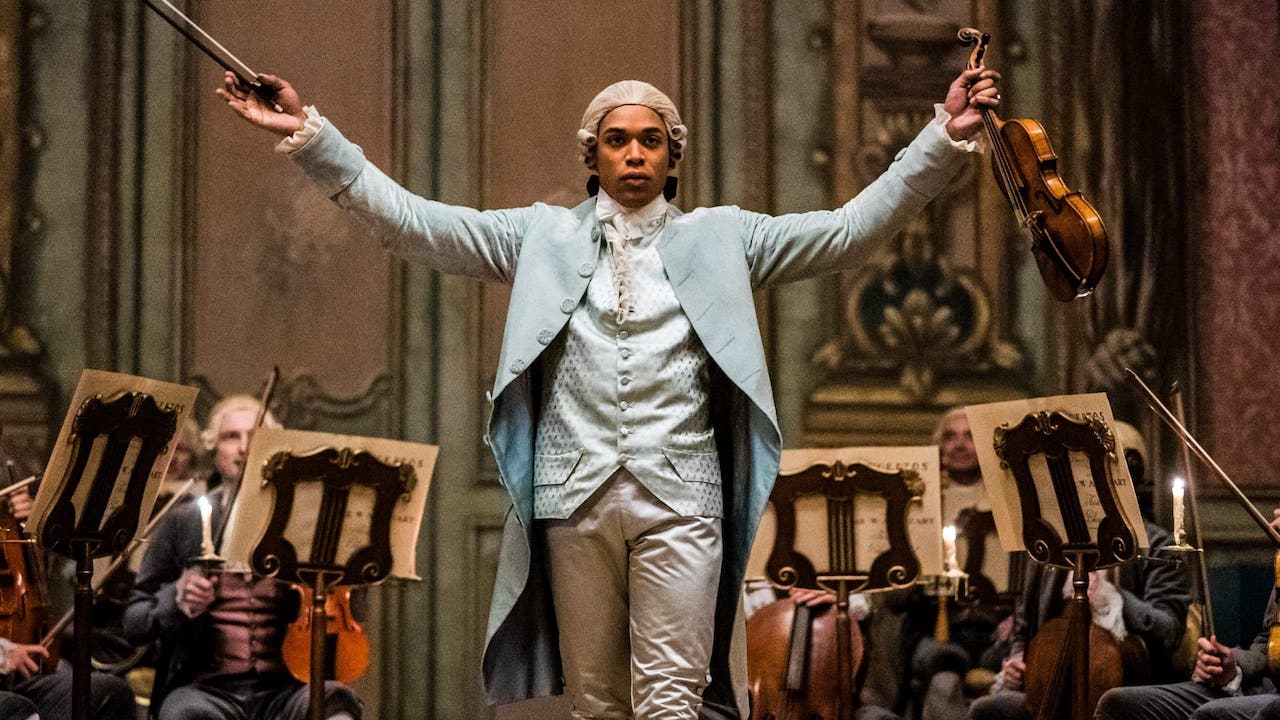
In a spring movie season that has been full of action-packed escapism like the video-game adaptation of The Super Mario Bros., Keanu Reeves’ stunt-heavy John Wick 4 or the heist adventure Dungeons & Dragons, I’m excited to see more of other genres of movies get a comeback in theaters this year and hopefully make waves, too. One mid-budget 2023 new movie release to get on your radar is Chevalier, an epic biopic about a notable Black musician and forgotten classical composer who deserves to receive his flowers on the big screen over 200 years after his life and death.
Chevalier is a historical drama based on the life of Joseph Bologne, Chevalier de Saint-Georges, a French-Caribbean virtuoso violinist and composer who led orchestras in Paris, France during Marie Antoinette’s time as queen, before heading a regiment in the French Revolution. Since it’s not based on a popular property or about a universally known figure in history I could see why many moviegoers may skip out on this title, but here’s why I recommend you instead go out of your way to see it!
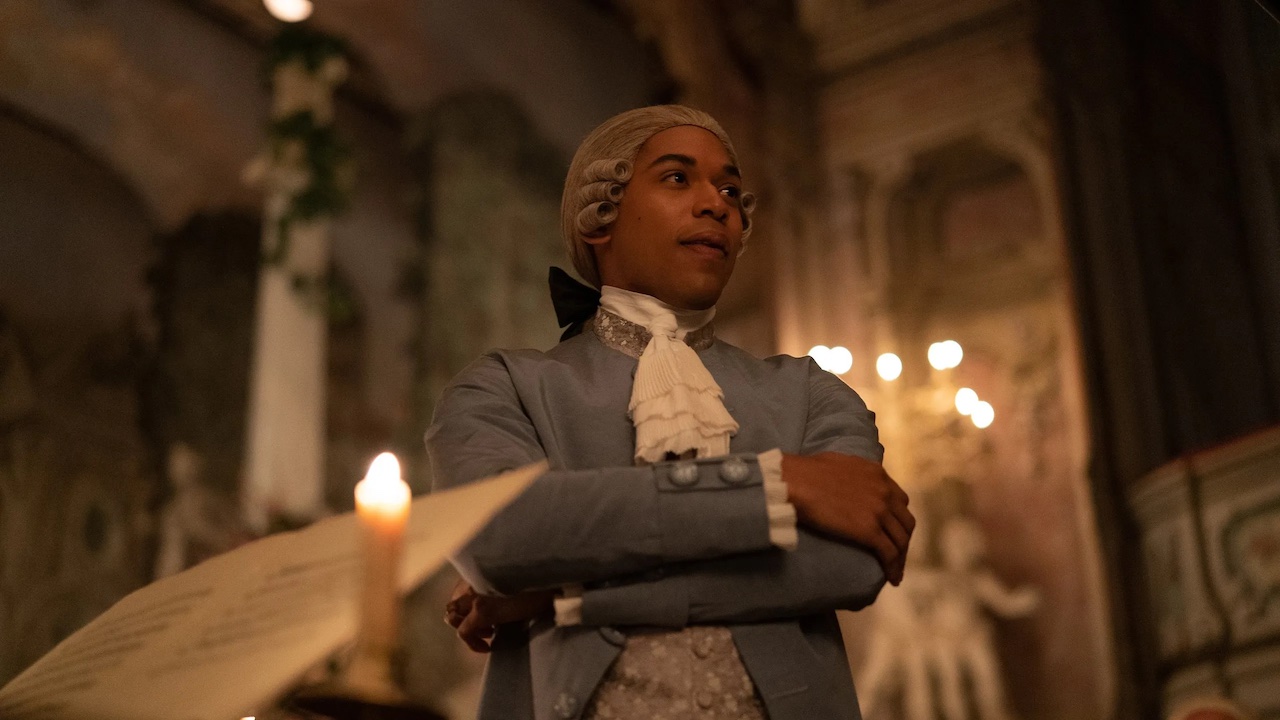
You’ve Probably Never Heard Of Joseph Bologne
What especially struck me about Chevalier when watching it is how incredible and interesting of a life he led, yet if it hadn’t been for this movie, I likely would have never been exposed to him. When the history of classical music is discussed, of course names like Amadeus Mozart or Ludwig van Beethoven come up, and sure, they are referenced a thousand times more than Joseph Bologne’s works are, but that’s exactly why this movie is so important.
Too often has history has been written as a white-washed version of events that does not include the people of color from eras across history who were prominent and made a mark. Chevalier tells the story of how Bologne, the illegitimate son of an African slave and French plantation owner, found a rank in French nobility and began leading orchestras in Paris as part of the queen’s court. The key story of the movie follows his efforts to compose and have an original opera grant him a higher status in the court.
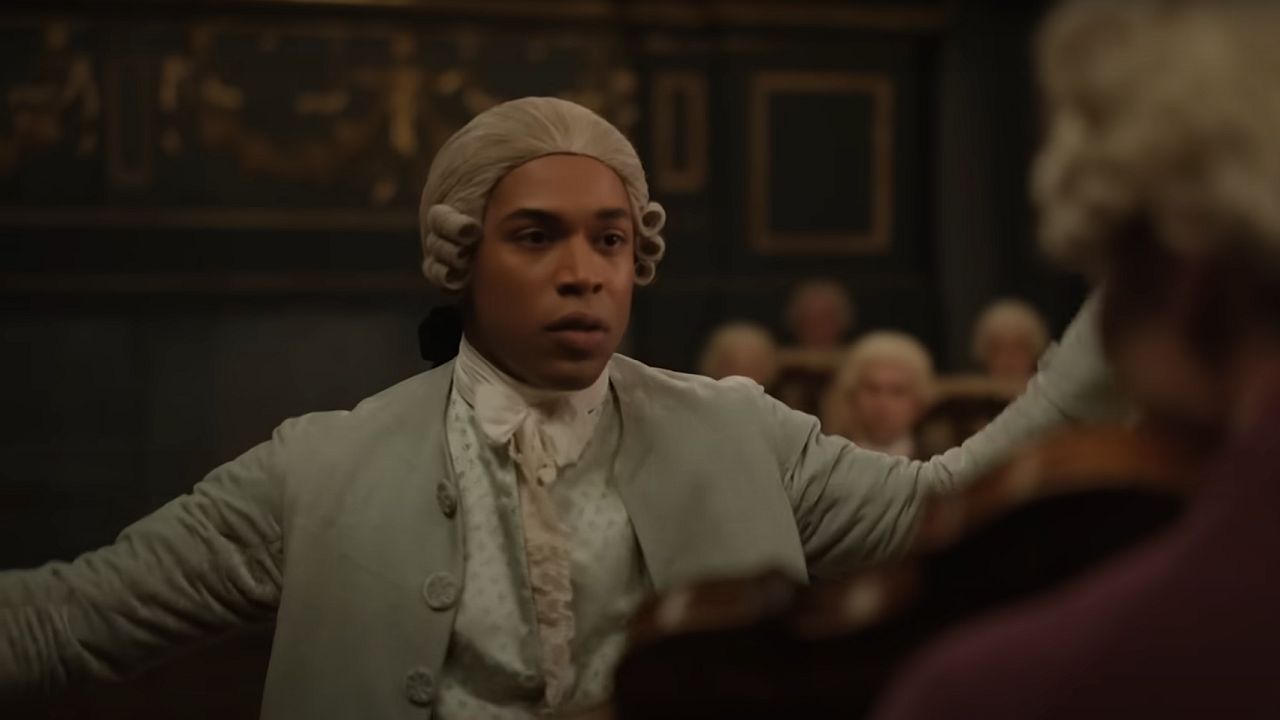
Chevalier Explores Human Rights Issues Ahead Of The French Revolution
We’ve seen more inclusive regency romances in recent years, such as the 2022 movie, Mr. Malcolm’s List, aim to embrace diversity in an authentic way or Bridgerton spinoff Queen Charlotte starring a person of color after the main series has been all about finding diversity in a period drama. When it comes to Chevalier, this is a movie that follows a real figure who lived in history intersected with the struggles and successes he faced as a Black man in Marie Antoinette’s court. The discussion of racism is one that dates back across human history, though I feel as if not every era wholly discusses it. It’s really worthwhile to see this particular one, because we can see how history repeats itself and rears its ugly head in numerous societies and moments in time.
Along with Chevalier exploring discrimination of Bologne, it also does an incredible job of sharing the perspective of a well-off woman at that time, through Samara Weaving’s Marie-Joséphine de Comarieu de Montalembert, and how she could very much relate to his discrimination, but through the lens of a misogynistic society where women were only thought of as property. The film does a beautiful job of telling a good and entertaining story whilst also touching on topics of human rights and how the lack of them has torn so many lives apart from the past up to today. It's sadly still pretty relatable.
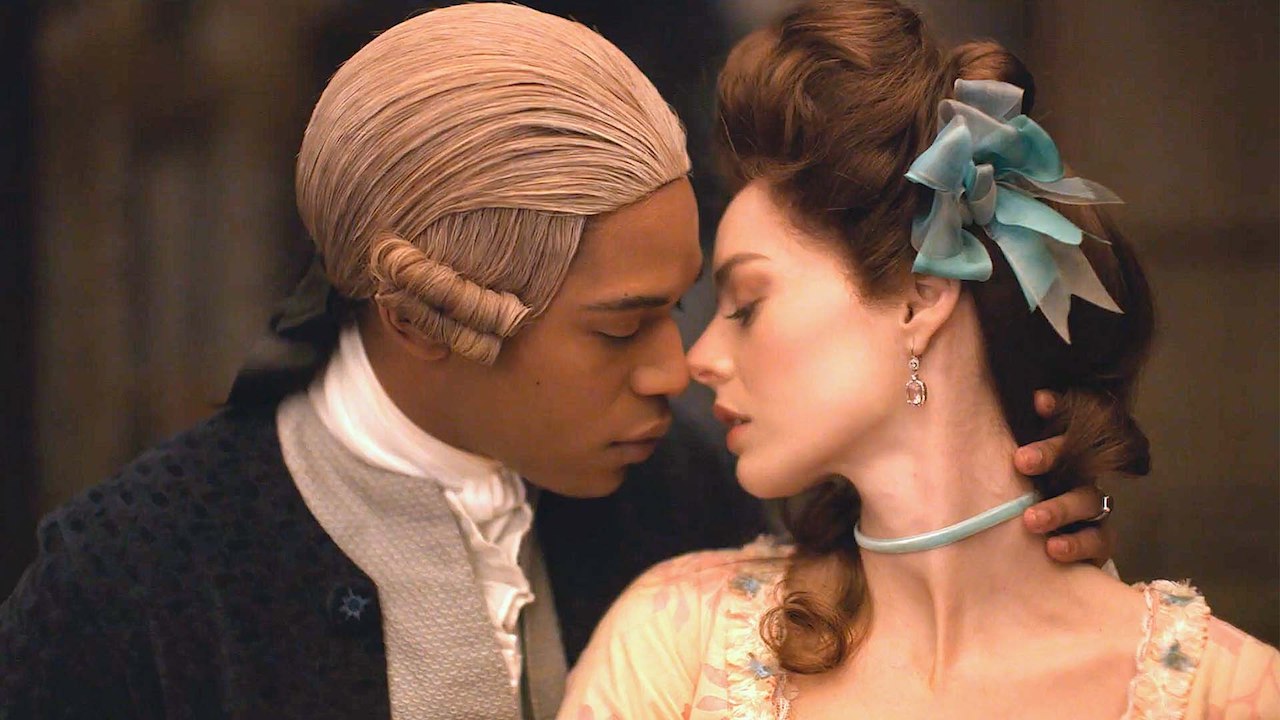
It Also Doubles As A Great Period Forbidden Romance
With the previous point in mind, Chevalier does explore a romance between Joseph and Marie-Joséphine, whom he hires as the singer for his opera. It becomes somewhat of a steamy romance between them, especially because they are not supposed to be together, but they so clearly have an intense connection that no one else can fill but the other.
Marie-Joséphine is married and ordered not to sing opera, and yet she both loves it and is so talented at it that she simply cannot quit her passion. All the while, Joseph has a recognizable status in the court and much more notoriety than other Black men in Paris, yet his desire to be more relevant propels him to defy the status quo.
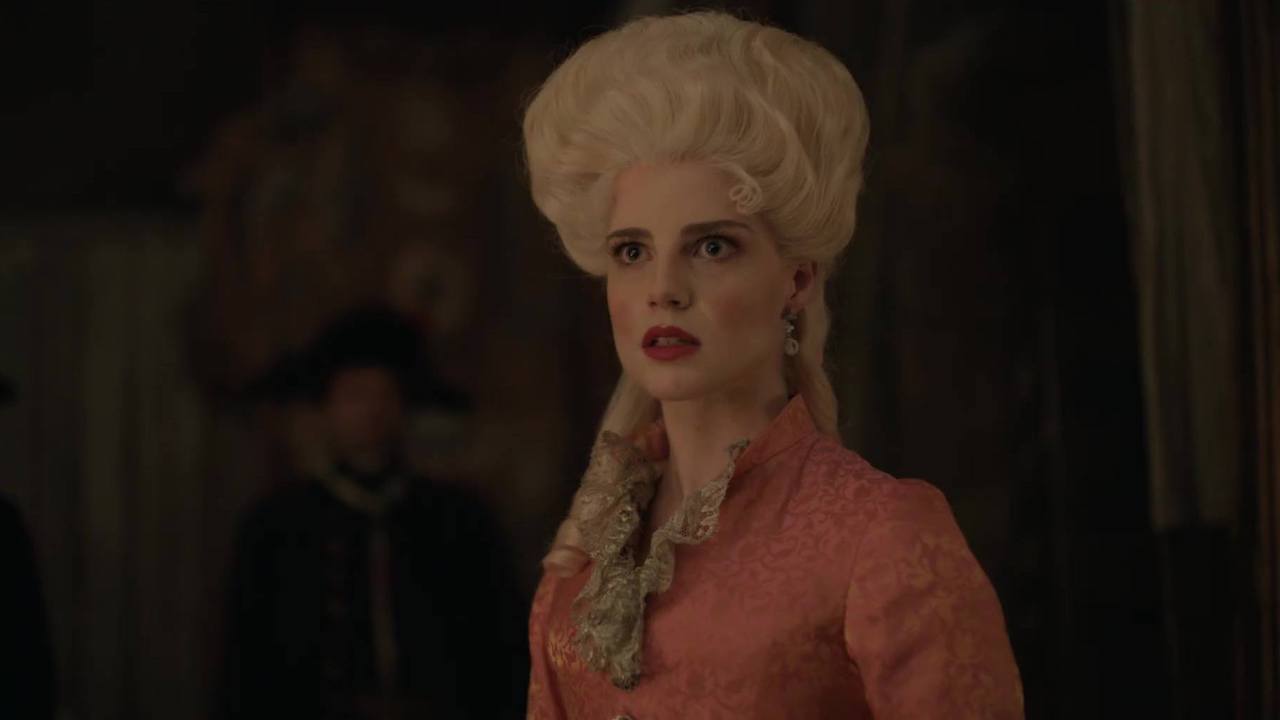
Marie Antoinette Has A Unique Role In Chevalier
And then there’s the Marie Antoinette of it all. Kirsten Dunst’s steamy 2006 historical drama definitely delved into the Austrian queen’s life on film in a memorable way, but it was really interesting to see 1) what Lucy Boynton does with the historical figure and 2) how her life intersects with the Chevalier. This goes back to it being worthwhile to tell historical stories from different perspectives, because while a biopic about Marie Antoinette is intriguing, learning about the sole Black musician in her court and how his life intertwined with the French Revolution is perhaps even more interesting.
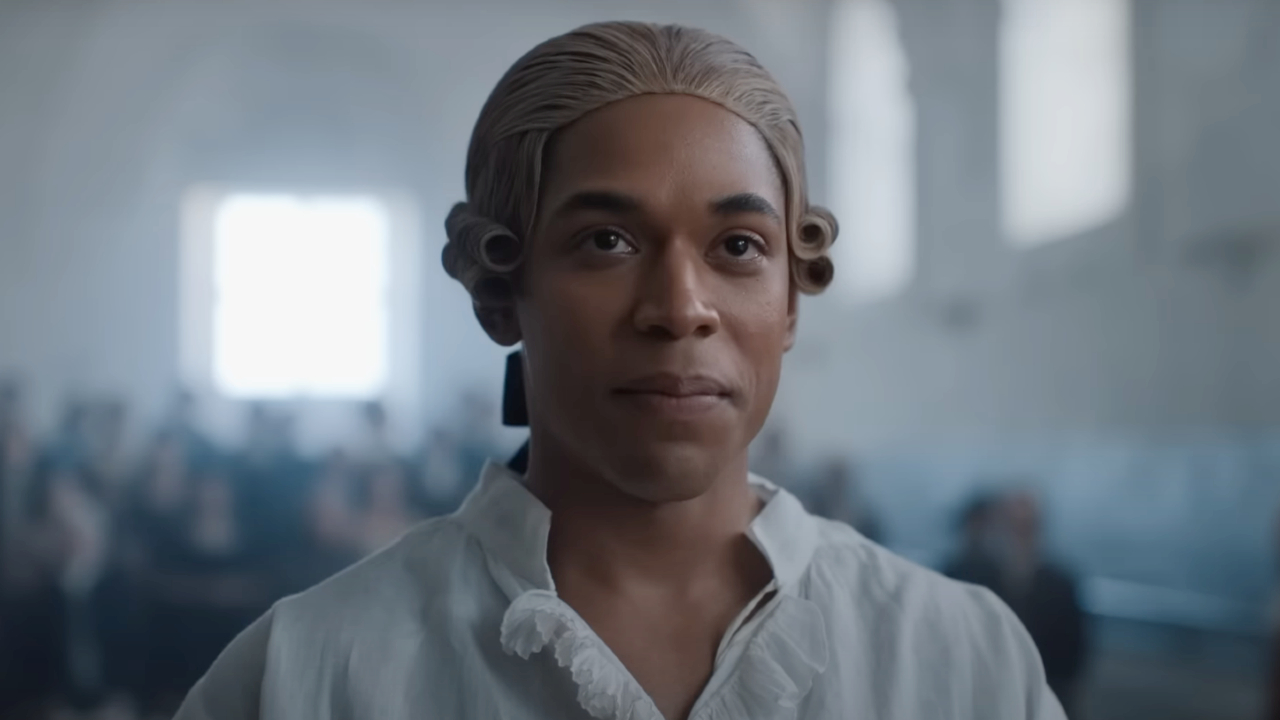
Get Ready For Kelvin Harrison Jr. To Blow Up, Because He Will
Finally, I have to talk about Chevalier’s lead, Kelvin Harrison Jr. You may have seen Kelvin Harrison Jr. movies thus far like Waves, or his supporting role as BB King in Elvis or other highlight performances in Cyrano and The Trial of the Chicago 7, but this movie really nailed it down for me that this guy is a star and it’s only a matter of time before he blows up in a big way. If you haven’t been paying attention to Harrison Jr. yet, his star turn here is a great introductory film to the actor ahead of him being set to voice the role of Scar in Barry Jenkins’ Mufasa: The Lion King and portraying Dr. Martin Luther King Jr. in the upcoming Disney+ TV series, Genius: MLK/X.
Chevalier is absolutely worth your time, whether you are a history buff or fan of romance and music. You can check it out, only in theaters, this Friday, April 21.







